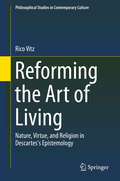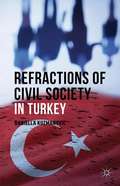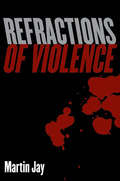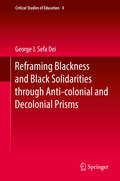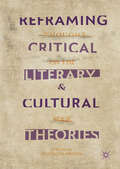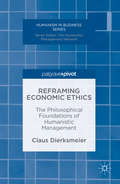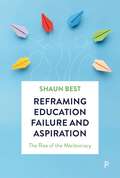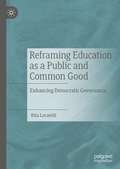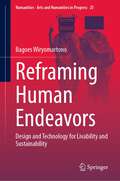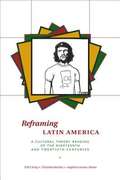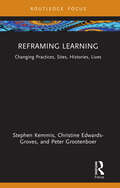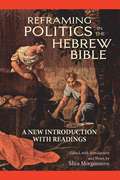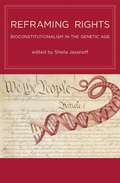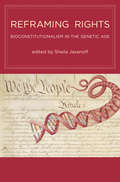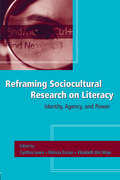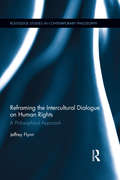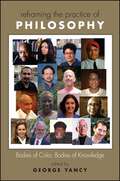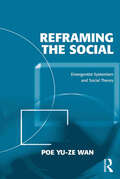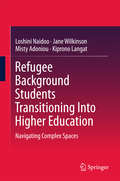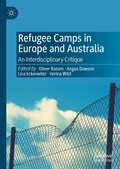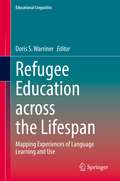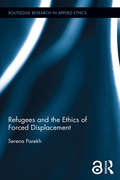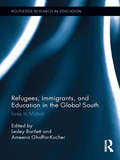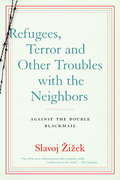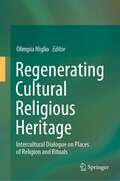- Table View
- List View
Reforming the Art of Living
by Rico VitzDescartes's concern with the proper method of belief formation is evident in the titles of his works--e. g. , The Search after Truth, The Rules for the Direction of the Mind and The Discourse on Method of rightly conducting one's reason and seeking the truth in the sciences. It is most apparent, however, in his famous discussions, both in the Meditations and in the Principles, of one particularly noteworthy source of our doxastic errors--namely, the misuse of one's will. What is not widely recognized, let alone appreciated and understood, is the relationship between his concern with belief formation and his concern with virtue. In fact, few seem to realize that Descartes regards doxastic errors as moral errors and as sins both because such errors are intrinsically vicious and because they entail notably deleterious social consequences. Reforming the Art of Living seeks to rectify this rather common oversight in two ways. First, it aims to elucidate the nature of Descartes's account of virtuous belief formation. Second, it aims both (i) to illuminate the social significance of Descartes's philosophical program as it relates to the understanding and practice not of science, but of religion and (ii) to develop a kind of Leibnizian critique of this aspect of his program. More specifically, it aims to show that Descartes's project is "dangerous," insofar as it is subversive not only of traditional Christianity but also of other traditional forms of religion, both in theory and in practice.
Refractions of Civil Society in Turkey
by Daniella KuzmanovicDrawing on data from ethnographic fieldwork among civic activists and identifying a range of domestic and international socio-political contexts, Refractions of Civil Society in Turkey explores different perceptions of civil society in Turkey and pursues the general question of why civil society holds such power to move those who evoke it.
Refractions of Violence
by Martin JayA new collection of essays by the internationally recognized cultural critic and intellectual historian Martin Jay that revolves around the themes of violence and visuality, with essays on the Holocaust and virtual reality, religious violence, the art world, and the Unicorn Killer, among a wide range of other topics.
Reframing Blackness and Black Solidarities through Anti-colonial and Decolonial Prisms
by George J. Sefa DeiThis book grounds particular struggles at the curious interface of skin, body, psyche, hegemonies and politics. Specifically, it adds to current [re]theorizations of Blackness, anti-Blackness and Black solidarities, through anti-colonial and decolonial prisms. The discussion challenges the reductionism of contemporary polity of Blackness in regards to capitalism/globalization, particularly when relegated to the colonial power and privileged experiences of settler. The book does so by arguing that this practice perpetuates procedures of violence and social injustice upon Black and African peoples. The book brings critical readings to Black racial identity, representation and politics informed by pertinent questions: What are the tools/frameworks Black peoples in Euro-American/Canadian contexts can deploy to forge community and solidarity, and to resist anti-Black racism and other social oppressions? What critical analytical tools can be developed to account for Black lived experiences, agency and resistance? What are the limits of the tools or frameworks for anti-racist, anti-colonial work? How do such critical tools or frameworks of Blackness and anti-Blackness assist in anti-racist and anti-colonial practice? The book provides new coordinates for collective and global mobilization by troubling the politics of "decolonizing solidarity" as pointing to new ways for forging critical friends and political workers. The book concludes by offering some important lessons for teaching and learning about Blackness and anti-Blackness confronting some contemporary issues of schooling and education in Euro-American contexts, and suggesting ways to foster dialogic and generative forums for such critical discussions.
Reframing Critical, Literary, and Cultural Theories: Thought on the Edge
by Nicoletta PiredduThis book participates in the ongoing debate about the alleged “death of theory” and the current post-theoretical condition, arguing that the “finitude” of theoretical projects does not mean “end”, but rather contingency and transformation of thinking, beyond irreconcilable doctrines. Contributors from different cultural and scholarly backgrounds and based in three different continents propose new areas of investigation and interpretive possibilities, reopening dialogues with past and present discourses from a plurality of perspectives and locations. After a first section that reassesses the status and scopes of critique, theory, and literature, the book foregrounds new or neglected critical vocabulary, literary paradigms, and narrative patterns to reread texts at the intersection with other branches of the humanities—history, philosophy, religion, and pedagogy. It then explores geopolitical, cultural, and epistemological domains that have been historically and ideologically overdetermined (such as postsocialist, postcolonial, and cosmopolitan spaces), recodifying them as unstable sites of both conflicts and convergences. By acknowledging the spatio-temporal and cultural delimitations of any intellectual practice, the book creates awareness of our own partiality and incompleteness, but treats boundaries as zones of contact, exchange, and conceptual mobility that promote crossings and connections.
Reframing Economic Ethics
by Claus DierksmeierThis book reconstructs major paradigms in the history of economic ethics up to, and including, the present day. Asserting that ethics should be integral rather than marginal to economics and management education, Reframing Economic Ethics highlights the need for a paradigm change from mechanistic to humanistic management, and argues that the failures of markets and managers in recent years were paved by a misguided management education. The author shows how the reader can and must learn from the history of economic thinking in order to overcome the theoretical shortcomings and the practical failings of the present system.
Reframing Education Failure and Aspiration: The Rise of the Meritocracy
by Shaun BestEducation is considered central to social mobility and, following a drive to raise learners’ aspirations, an ‘aspiration industry’ has emerged. However, the desire to leave school early should not be regarded as evidence of students lacking ambition. This book traces the emergence of the aspiration industry and argues that to have ambitions that do not require qualifications is different, but not wrong. Reviewing the performance of six schools in England, their Ofsted reports and responses, it evaluates underpinning assumptions of what makes an effective school. This book critically examines neo-liberal education policy developments, including the 1988 Education Reform Act, and the political discourse around changing explanations of education ‘failure’ with the rise in the marketisation of education.
Reframing Education as a Public and Common Good: Enhancing Democratic Governance
by Rita LocatelliThis book examines the normative principles that guide the governance of education, in particular the notion of education as a public good. Determining whether this concept is still valid is a topic of growing importance, especially considering the phenomena of increasing privatisation and marketisation in the sector. The author posits that the prioritisation of economic aspects of education may lead to the weakening of the role of the State in ensuring equality of opportunity and social justice, and thus to a significant risk of considering education as merely a private, marketable good. The volume argues that considering education as a common good can lead to the strengthening of democratic and participatory approaches to educational governance, based on the recognition of education as a shared endeavour and responsibility. It will be of interest and value to students and scholars of education as a public good, social justice, and the wider neoliberalisation of the education sector.
Reframing Human Endeavors: Design and Technology for Livability and Sustainability (Numanities - Arts and Humanities in Progress #25)
by Bagoes WiryomartonoThis ambitious text is a monograph about human experiences concerning the potentialities, capacities, and features of humankind from the wholeness of the collective mind body spirit. The purpose in reframing human endeavors is for enhanced alignment for livability and sustainability. This book departs from the concept and practice of “design and technology” and argues that most crises that endanger and destruct our ecological livability and sustainability come from our way of thinking and doing with “design and technology” based on the necessity for control. It is the control for overcoming the fear of scarcity, starvation, and the unknown. This book is rather an attempt to find alternate way of decision-making thru holistic methods. It appeals to researchers working in design, sustainability, architecture and urban studies.
Reframing Latin America
by Erik Ching Christina Buckley Angélica Lozano-AlonsoProviding an extensive introduction to cultural studies in general, regardless of chronological or geographic focus, and presenting provocative, essential readings from Latin American writers of the last two centuries, Reframing Latin America brings much-needed accessibility to the concepts of cultural studies and postmodernism. From Saussure to semiotics, the authors begin by demystifying terminology, then guide readers through five identity constructs, including nation, race, and gender. The readings that follow are presented with insightful commentary and encompass such themes as "Civilized Folk Marry the Barbarians" (including José Martí's "Our America") and "Boom Goes the Literature: Magical Realism as the True Latin America?" (featuring Elena Garro's essay "It's the Fault of the Tlaxcaltecas"). Films such as Like Water for Chocolate are discussed in-depth as well. The result is a lively, interdisciplinary guide for theorists and novices alike.
Reframing Learning: Changing Practices, Sites, Histories, Lives (Routledge Research in the Sociology of Education)
by Stephen Kemmis Christine Edwards-Groves Peter GrootenboerDisrupting the individualism of much conventional psychological research into learning, this book presents a situated, practice-based understanding of learning, based on the theories of situated learning and practice architectures, conceptualising learning as ontological transformation. While accepting that learning is consequential for learners, this book explores how learning matters for and in the world. The authors present a view of learning not just in the context of the lives of learners and those around them, but as part of the dynamic and organic site-ontological processes of world-historical and ecological change. While learners may be stars in their own lives and learning, they are also living, agentic beings who are part of Earth’s community of life and who respond to the changing world in ways that are consequential beyond their own lives. The book explores the place of learning from the point of view of the world as much as from the point of view of the learner. Distinctively, the book conceptualises learning as a social accomplishment and as a process that changes the worlds beyond individual learners.A groundbreaking contribution from the leading scholars in the field, this book will be of great interest to scholars, researchers, and post-graduate students of education, social science, and philosophy, and the specific fields of professional practice, practice theory, learning sciences, and sociology.
Reframing Politics in the Hebrew Bible: A New Introduction with Readings
by Mira MorgensternInspired by the Enlightenment readings of Hebrew biblical texts generated in the seventeenth through the nineteenth centuries, Mira Morgenstern's Reframing Politics in the Hebrew Bible goes beyond the pioneering interpretations of various biblical texts penned by such noted Bible students as Spinoza, Rousseau, and Angelina Grimké to present an introduction to the Hebrew Bible as a whole from the perspective of a modern-day political theorist. In doing so, it offers a brilliant thematic guide to the Hebrew Bible's most politically salient passages, complete with text and commentary. Morgenstern's account of the significance of these ancient yet strangely modern texts will fascinate students of both ancient and modern political theory—as well as all readers of the Hebrew Bible itself.
Reframing Rights
by Sheila JasanoffLegal texts have been with us since the dawn of human history. Beginning in 1953, life too became textual. The discovery of the structure of DNA made it possible to represent the basic matter of life with permutations and combinations of four letters of the alphabet, A, T, C, and G. Since then, the biological and legal conceptions of life have been in constant, mutually constitutive interplay--the former focusing on life's definition, the latter on life's entitlements. Reframing Rights argues that this period of transformative change in law and the life sciences should be considered "bioconstitutional. "Reframing Rights explores the evolving relationship of biology, biotechnology, and law through a series of national and cross-national case studies. Sheila Jasanoff maps out the conceptual territory in a substantive editorial introduction, after which the contributors offer "snapshots" of developments at the frontiers of biotechnology and the law. Chapters examine such topics as national cloning and xenotransplant policies; the politics of stem cell research in Britain, Germany, and Italy; DNA profiling and DNA databases in criminal law; clinical trials in India and the United States; the GM crop controversy in Britain; and precautionary policymaking in the European Union. These cases demonstrate changes of constitutional significance in the relations among human bodies, selves, science, and the state.
Reframing Rights: Bioconstitutionalism in the Genetic Age (Basic Bioethics)
by Sheila JasanoffInvestigations into the interplay of biological and legal conceptions of life, from government policies on cloning to DNA profiling by law enforcement.Legal texts have been with us since the dawn of human history. Beginning in 1953, life too became textual. The discovery of the structure of DNA made it possible to represent the basic matter of life with permutations and combinations of four letters of the alphabet, A, T, C, and G. Since then, the biological and legal conceptions of life have been in constant, mutually constitutive interplay—the former focusing on life's definition, the latter on life's entitlements. Reframing Rights argues that this period of transformative change in law and the life sciences should be considered “bioconstitutional.”Reframing Rights explores the evolving relationship of biology, biotechnology, and law through a series of national and cross-national case studies. Sheila Jasanoff maps out the conceptual territory in a substantive editorial introduction, after which the contributors offer “snapshots” of developments at the frontiers of biotechnology and the law. Chapters examine such topics as national cloning and xenotransplant policies; the politics of stem cell research in Britain, Germany, and Italy; DNA profiling and DNA databases in criminal law; clinical trials in India and the United States; the GM crop controversy in Britain; and precautionary policymaking in the European Union. These cases demonstrate changes of constitutional significance in the relations among human bodies, selves, science, and the state.
Reframing Sociocultural Research on Literacy: Identity, Agency, and Power
by Cynthia Lewis Elizabeth Birr Moje Patricia EncisoThis landmark volume articulates and develops the argument that new directions in sociocultural theory are needed in order to address important issues of identity, agency, and power that are central to understanding literacy research and literacy learning as social and cultural practices. With an overarching focus on the research process as it relates to sociocultural research, the book is organized around two themes: conceptual frameworks and knowledge sources. *Part I, “Rethinking Conceptual Frameworks,” offers new theoretical lenses for reconsidering key concepts traditionally associated with sociocultural theory, such as activity, history, community, and the ways they are conceptualized and under-conceptualized within sociocultural theory.*Part II, “Rethinking Knowledge and Representation,” considers the tensions and possibilities related to how research knowledge is produced, represented, and disseminated or shared—challenging the locus of authority in research relationships, asking who is authorized to be a legitimate knowledge source, for what purposes, and for which audiences or stakeholders. Employing the lens of “critical sociocultural research,” this book focuses on the central role of language and identity in learning and literacy practices. It is intended for scholars, researchers, and graduate students in literacy education, social and cultural psychology, social foundations of education, educational anthropology, curriculum theory, and qualitative research in education.
Reframing the Intercultural Dialogue on Human Rights: A Philosophical Approach (Routledge Studies in Contemporary Philosophy)
by Jeffrey FlynnIn this book, Flynn stresses the vital role of intercultural dialogue in developing a non-ethnocentric conception of human rights. He argues that Jürgen Habermas’s discourse theory provides both the best framework for such dialogue and a much-needed middle path between philosophical approaches that derive human rights from a single foundational source and those that support multiple foundations for human rights (Charles Taylor, John Rawls, and various Rawlsians). By analyzing the historical and political context for debates over the compatibility of human rights with Christianity, Islam, and "Asian Values," Flynn develops a philosophical approach that is continuous with and a critical reflection on the intercultural dialogue on human rights. He reframes the dialogue by situating it in relation to the globalization of modern institutions and by arguing that such dialogue must address issues like the legacy of colonialism and global inequality while also being attuned to actual political struggles for human rights.
Reframing the Practice of Philosophy: Bodies of Color, Bodies of Knowledge (SUNY series, Philosophy and Race)
by George YancyThis daring and bold book is the first to create a textual space where African American and Latin American philosophers voice the complex range of their philosophical and meta-philosophical concerns, approaches, and visions. The voices within this book protest and theorize from their own standpoints, delineating the specific existential, philosophical, and professional problems they face as minority philosophical voices.
Reframing the Social: Emergentist Systemism and Social Theory
by Poe Yu-ze WanDrawing extensively on the research findings of natural and social sciences both in America and Europe, Reframing the Social argues for a critical realist and systemist social ontology, designed to shed light on current debates in social theory concerning the relationship of social ontology to practical social research, and the nature of 'the social'. It explores the works of the systems theorist Mario Bunge in comparison with the approach of Niklas Luhmann and critical social systems theorists, to challenge the commonly held view that the systems-based approach is holistic in nature and necessarily downplays the role of human agency. Theoretically sophisticated and investigating the work of a theorist whose work has until now received insufficient attention in Anglo-American thought, this book will be of interest to those working in the field of social theory, as well as scholars concerned with philosophy of social science, the project of analytical sociology, and the nature of the relationship between the natural and social sciences.
Refugee Background Students Transitioning Into Higher Education: Navigating Complex Spaces
by Jane Wilkinson Loshini Naidoo Misty Adoniou Kiprono LangatThis book is one of the first of its kind to examine the aspirations of refugee background students and accompanies them as they journey through the on-shore stage of settlement, enrolment and participation in the Australian education system. It begins with students’ experiences of on-shore settlement, followed by the move into schooling and finally, the subsequent transition into Australian higher education.Transitioning into higher education is a challenge for many students, particularly for those from under-represented equity groups. For refugee background students, navigating in, through and out of higher education can be particularly complex and challenging. Drawing on rich case studies from longitudinal research into refugee youth and the academic and professional staff in schools and universities who support them, the book provides powerful and compelling narratives and insights into this journey. It untangles the complex nature of transition for students of refugee background in higher education, locating it within broader social trends of increasing social and cultural diversity, as well as government practices and policies concerning the educational resettlement of refugees.
Refugee Camps in Europe and Australia: An Interdisciplinary Critique
by Angus Dawson Oliver Razum Lisa Eckenwiler Verina WildThis Palgrave Pivot examines refugee camps in the EU, Australia, and their border zones. The approach is interdisciplinary, comprising perspectives of history, ethics, political science, literature, and health. The book argues that current practice of accommodating refugees is arbitrary and disempowering, ranging from strict regulation within nation states to detrimental conditions in extraterritorial camps. It instead proposes to increase public scrutiny of refugee camps, to enforce existing laws, and to endorse ethical place-making. With its contributions from a wide range of fields, this edited volume will be of interest to academics and students in public health, ethics, sociology, politics, and related fields.
Refugee Education across the Lifespan: Mapping Experiences of Language Learning and Use (Educational Linguistics #50)
by Doris S. WarrinerThis edited volume demonstrates how an educational linguistics approach to inquiry is well positioned to identify, examine, and theorize the language and literacy dimensions of refugee-background learners’ experiences. Contributions (from junior and senior scholars) explore and interrogate the policies, practices and ideologies of language and literacy in formal and informal educational settings as well as their implications for teaching and learning. Chapters in this collection will inform advances in the research base, future innovations in pedagogy, the professional development of teachers, and the educational opportunities that are made available to refugee-background children, youth and adults. The work showcased here will be of particular interest to teachers and teacher educators committed to inclusion, equity, and diversity; those developing curriculum and/or assessment; and researchers interested in the relationship between language practice, language policy and refugee education.
Refugees and the Ethics of Forced Displacement (Routledge Research in Applied Ethics)
by Serena ParekhThis book is a philosophical analysis of the ethical treatment of refugees and stateless people, a group of people who, though extremely important politically, have been greatly under theorized philosophically. The limited philosophical discussion of refugees by philosophers focuses narrowly on the question of whether or not we, as members of Western states, have moral obligations to admit refugees into our countries. This book reframes this debate and shows why it is important to think ethically about people who will never be resettled and who live for prolonged periods outside of all political communities. Parekh shows why philosophers ought to be concerned with ethical norms that will help stateless people mitigate the harms of statelessness even while they remain formally excluded from states. The Open Access version of this book, available at https://doi.org/10.4324/9781315883854, has been made available under a Creative Commons Attribution-Non Commercial-No Derivatives 4.0 license.
Refugees, Immigrants, and Education in the Global South: Lives in Motion (Routledge Research in Education #94)
by Lesley Bartlett Ameena Ghaffar-KucherThe unprecedented human mobility the world is now experiencing poses new and unparalleled challenges regarding the provision of social and educational services throughout the global South. This volume examines the role played by schooling in immigrant incorporation or exclusion, using case studies of Thailand, India, Nepal, Hong Kong/PRC, the Philippines, the United Arab Emirates, Jordan, Kenya, Egypt, South Africa, Senegal, Sudan, Mexico, and the Dominican Republic. Drawing on key concepts in anthropology, the authors offer timely sociocultural analyses of how governments manage increasing diversity and how immigrants strategize to maximize their educational investments. The findings have significant implications for global efforts to expand educational inclusion and equity.
Refugees, Terror and Other Troubles with the Neighbors: Against the Double Blackmail
by Slavoj ZizekCalled "the Elvis of cultural theory" by The New York Times, popular philosopher and leftist rabble-rouser Slavoj Zizek, looks at one of the most desperate situations of our time: the current refugee crisis overwhelming Europe. In this short yet stirring book, Zizek argues that accepting all comers or blocking all entry are both untenable solutions... but there is a third option.Today, hundreds of thousands of people, desperate to escape war, violence and poverty, are crossing the Mediterranean to seek refuge in Europe. Our response, from our protected Western European standpoint, argues Slavoj Zizek, offers two versions of ideological blackmail: either we open our doors as widely as possible; or we try to pull up the drawbridge. Both solutions are bad, states Zizek. They merely prolong the problem, rather than tackling it.The refugee crisis also presents an opportunity, a unique chance for Europe to redefine itself: but, if we are to do so, we have to start raising unpleasant and difficult questions. We must also acknowledge that large migrations are our future: only then can we commit to a carefully prepared process of change, one founded not on a community that see the excluded as a threat, but one that takes as its basis the shared substance of our social being.The only way, in other words, to get to the heart of one of the greatest issues confronting Europe today is to insist on the global solidarity of the exploited and oppressed. Maybe such solidarity is a utopia. But, warns Zizek, if we don't engage in it, then we are really lost. And we will deserve to be lost.
Regenerating Cultural Religious Heritage: Intercultural Dialogue on Places of Religion and Rituals
by Olimpia NiglioThis book introduces important reflections on understanding the meaning of cultural-religious heritage in an international context and their relationship with issues of sustainability at the local community level. Through a holistic approach, the book charts new courses in analyzing different cultural policies and methods for preserving and enhancing cultural heritage. Stemming from an intercultural seminar promoted by the International Scientific Committee Places of Religion and Ritual (ICOMOS PRERICO) under the theme of “Reuse and regenerations of cultural-religious heritage in the world: Comparison among cultures,” the book examines the scientific diplomacy and cultural strategies promoted by countries in dialogue with the UN 2030 Agenda, as well as Agenda 21 for Culture. The book seeks to reinforce the value of local cultural policies for supporting and enhancing cultural-religious heritage through specific programs and collaborations in dialogue with government policies. This collection is relevant to scholars working in areas relating to cultural heritage, religious heritage, architectural restoration, protection of the local inheritances, law, and management of the cultural sites.
